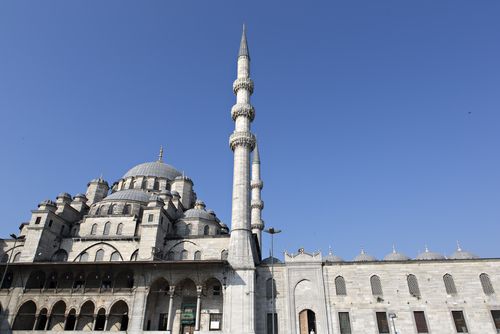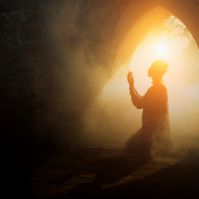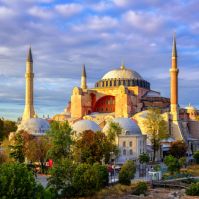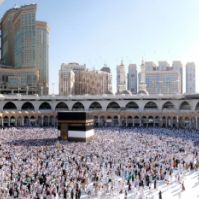 In a momentous event that bridges centuries and cultures, the historic Yen Cami Mosque in Thessaloniki, Greece, reopened its doors for Eid al-Fitr prayers for the first time in a century. This significant occasion marks not only a celebration of one of Islam's most important festivals but also a symbolic gesture of peace, unity, and respect among diverse religious communities in Greece.
In a momentous event that bridges centuries and cultures, the historic Yen Cami Mosque in Thessaloniki, Greece, reopened its doors for Eid al-Fitr prayers for the first time in a century. This significant occasion marks not only a celebration of one of Islam's most important festivals but also a symbolic gesture of peace, unity, and respect among diverse religious communities in Greece.
The History of the Yen Cami Mosque
Designed by the Italian architect Vitaliano Poselli, the Yen Cami Mosque was originally built in 1902 for a unique community of Jewish converts to Islam, known as Donmeh, during the Ottoman Empire's rule over Thessaloniki. The mosque stopped hosting Islamic prayers after the Greco-Turkish War, which saw many Greek Muslims forcibly relocated to Turkey.
For decades, the building shifted roles, serving as a shelter, then an archaeological museum, before finally being repurposed as a municipal cultural exhibition venue. Adorned with the six-pointed Stars of David, the mosque's architecture is a testament to its rich, pluralistic history.
The Significance of Eid al-Fitr
Eid al-Fitr, the Festival of Breaking the Fast, is one of the most cherished Islamic holidays. It marks the end of Ramadan, the holy month of fasting. It is a time of joy, community, and generosity.
Eid al-Fitr begins with a special prayer held in mosques and open spaces. Following the prayer, people visit family and friends, exchange gifts, and give to charity, known as Zakat al-Fitr, which is meant to purify those who fast from any indecent act or speech and to help the poor and needy. The day is also characterized by festive meals, with special dishes and sweets prepared and shared, embodying a spirit of community, gratitude, and celebration.
Until 2020, Muslims in Greece had to pray in informal religious spaces to celebrate Eid and other holidays. Having the Yen Cami Mosque reopen for prayers this year makes the occasion of Eid that much more special.
The Muslim Minority in Greece
The Muslim minority in Greece has deep historical roots that trace back centuries, particularly in the northeastern regions of Thrace. The mandatory population exchange between Greece and Turkey that happened after the Greco-Turkish War (1919-1922) is one of the most significant events for Greek Muslims. The Treaty of Lausanne aimed to "solve" the issue of national minorities by relocating Muslims from Greece to Turkey and Orthodox Christians from Turkey to Greece, increasing the amount of religious tension in both regions.
The status and rights of the Muslim minority in Greece have been a sensitive issue, intertwined with the broader Greek-Turkish relations. Over the decades, this community has faced challenges related to education, religious freedoms, and the recognition of its ethnic identity. Greek Muslims have rights to bilingual education and the freedom to practice their religion, with certain unique legal aspects under Islamic law applicable to family law and other personal matters.
The Celebration at Yen Cami in 2024
Greece's Muslim population today consists of migrants, a small indigenous Muslim minority in northeastern Greece exempt from the 1923 population exchange, and international students. The reopening of the Yen Cami Mosque for Eid prayers is a landmark event for these communities, offering a sense of belonging and recognition within the broader Greek society.
The Eid al-Fitr prayers at Yen Cami in 2024 drew about 70 worshippers, including Turkish tourists, local Muslims, international students, and refugees, all united in a historic moment of prayer and celebration. The event was a testament to Thessaloniki's multicultural heritage and commitment to inclusivity and respect for diverse faiths.
As Greece continues to navigate its diverse religious landscape, the celebration of Eid al-Fitr at the Yen Cami Mosque shines as a beacon of hope for the future. It is a reminder that, even in a nation with a predominantly Orthodox Christian population, there is room for all faiths to celebrate their most sacred traditions with dignity and joy.



